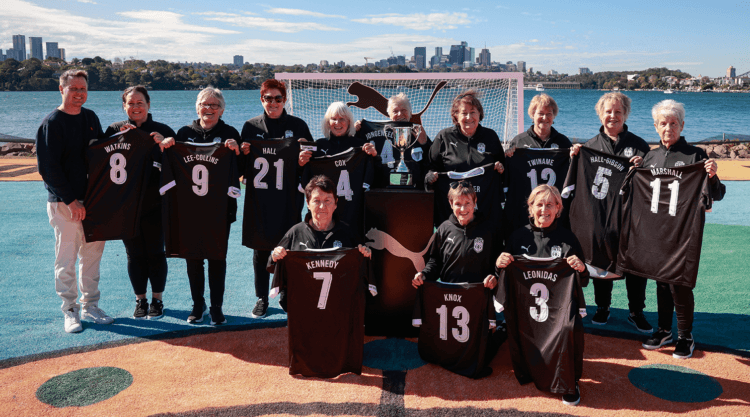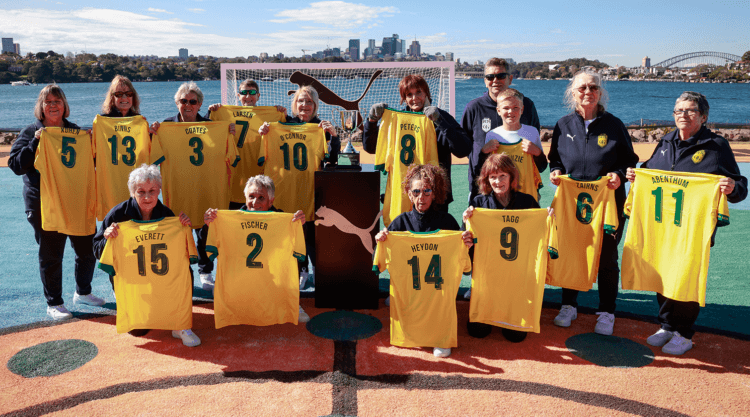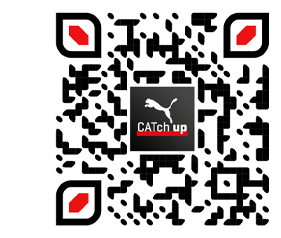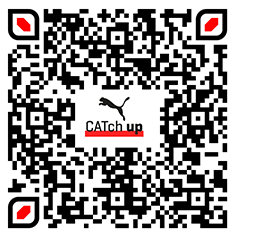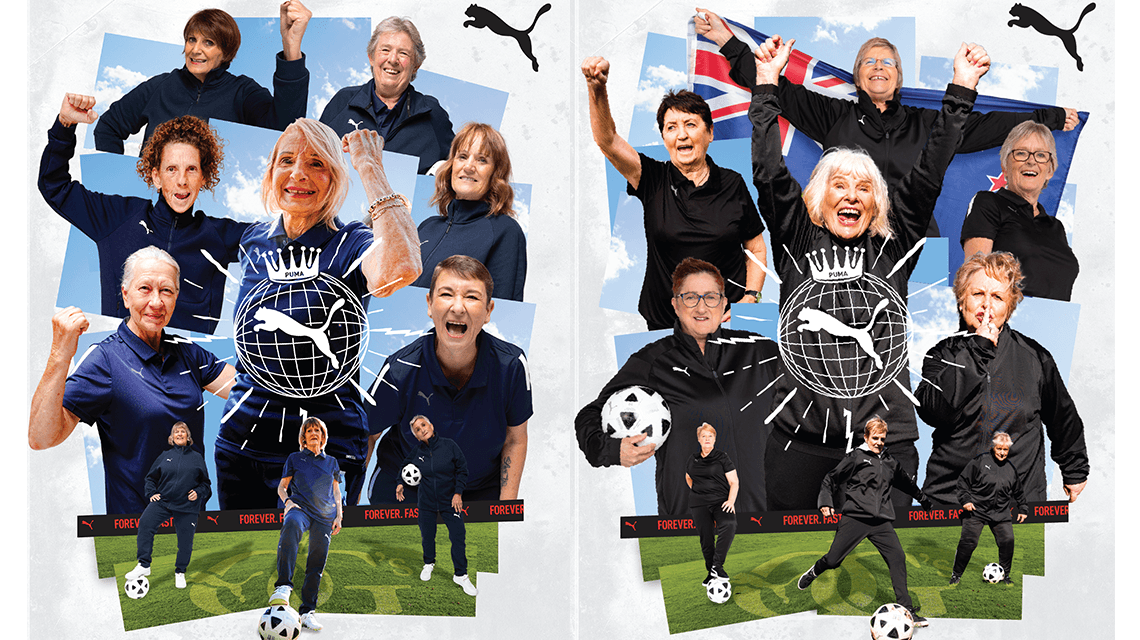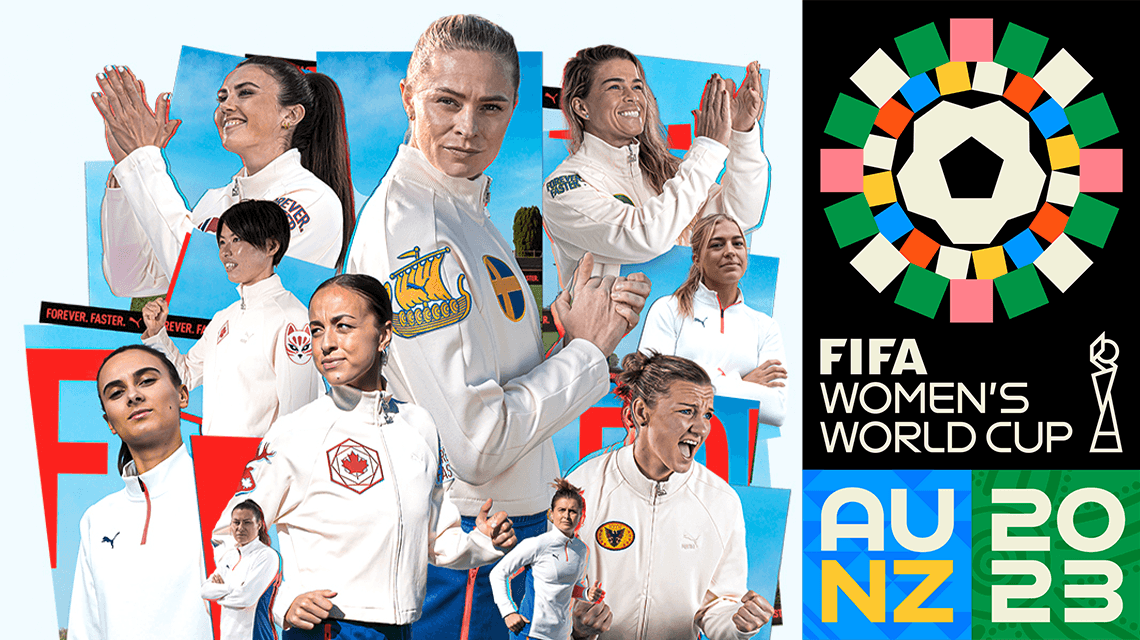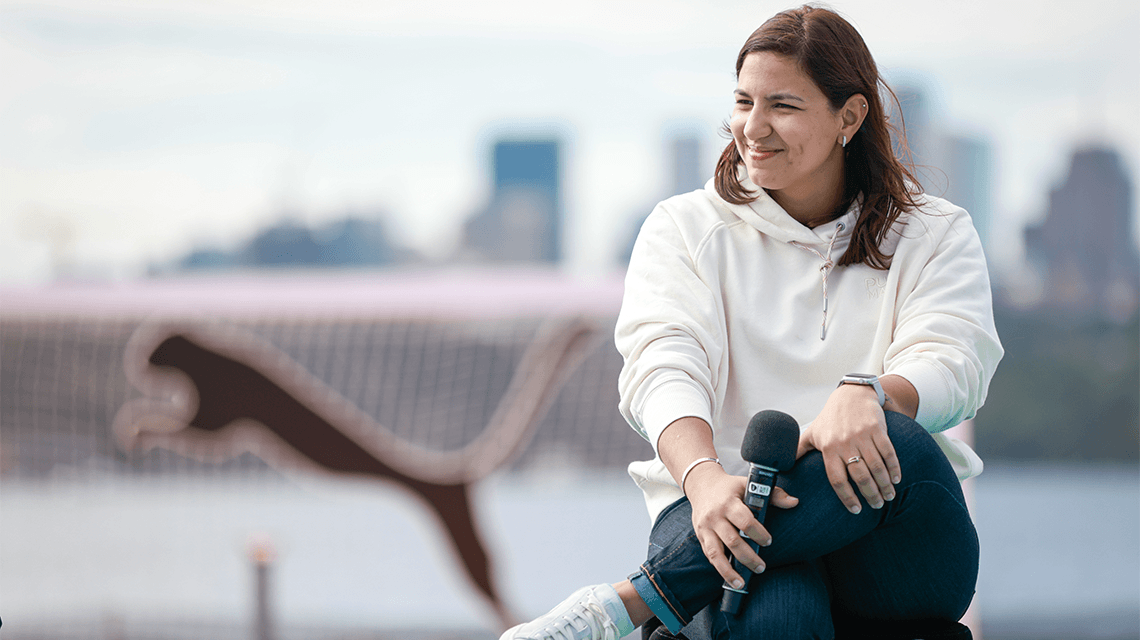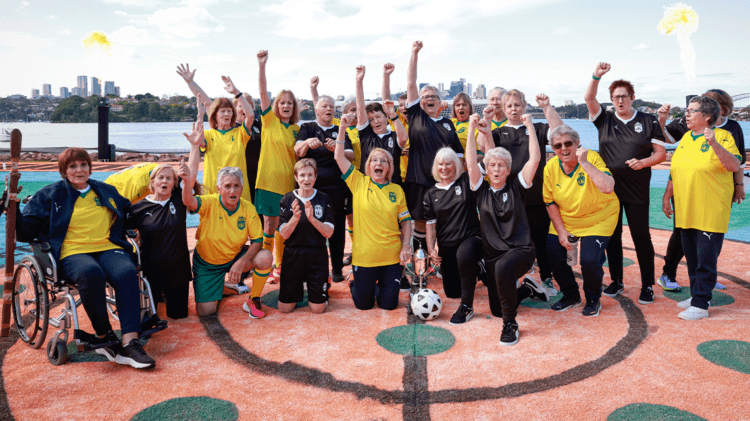
Trixie Tagg and Kathleen Hall
Reflect on Pioneering the Game
"It’s nice to look back with fond memories knowing that we have made a difference."
August 22, 2023"It’s nice to look back with fond memories knowing that we have made a difference."
August 22, 2023As this years Women’s Football World Cup ended with an exciting finale on Sunday, we take the time to once again celebrate the amazing achievement of women in the game. During the World Cup, our colleagues from PUMA Australia had the chance to have a chat with Kathleen Hall, from the 1975 New Zealand national team and Trixie Tagg, from the 1975 Australian national Team. Dive into the firsthand experiences of genuine Women’s Football pioneers!
Looking back nearly 50 years ago, what were the most significant challenges you faced as players and as a team during the 1975 Asian Cup?
Kathleen Hall, New Zealand: First of all, the whole thing wasn’t going to take off unless the whole team was prepared to fundraise and find ways to get money together. We had a lot of football clubs around the area but a lack of training facilities. I was based in Wellington, but most places weren’t prepared to allow women to train on the ground for fear of cutting up the ground and ruining it for the men. So, we had to find alternative grounds somewhere where they were prepared to let us train. One place was called Kilbirnie Green and that was a shared rugby and cricket ground but there were no flood lights, so we lined up our cars along the side ground and that became our floodlit training ground until we assembled in Auckland with the rest of the team. The fundraising was between carwashes, donations at sporting grounds towards getting us there and even our kit was made by a gentleman who was prepared to provide the material for us. He put our uniforms together and the whole thing was put together by the smell of an oily rag. We were so happy with anyone who wanted to help us.
Trixie Tagg, Australia: The biggest challenge was to get the money together to help us go over there. We had to do a hell of a lot of fundraising just to be there. We did walkathons, we organised dances, sausage sizzles, we sold soccer shirts outside the men’s matches. We did so many things and we did whatever we could. My honest opinion is that if we could have used those hours on the training field, I think we could have come home with the cup in 1975!
How did it feel to represent your respective countries and make history as pioneers in the sport?
Kathleen: In 1975 in New Zealand there was women’s football around, but they weren’t playing in a league as such. So, when we got the call-up, we were shocked about going overseas to play in a tournament, so we didn’t know what it was going to be like to travel as a team. But I was 18 and all I wanted to do was play football for my country, so it was the ultimate and my family were over the moon. And my brother had already played football for our country, so he cried and was so proud of me. It was a real thrill to be able to be the second member of my family to play for New Zealand.
Trixie: We didn’t think we were pioneers at that stage, but now looking back on everything that happened with us and what is happening currently, it’s nice to look back with fond memories knowing that we have made a difference. It has opened up the door for young girls and given opportunities, not only playing but coaching and working with teams and getting roles in the media for women. It’s nice to know what we helped to start that journey.
In the 1975 tournament, the New Zealand team emerged victorious. And even though Australia didn’t win, it was a fantastic effort from the team to go as far as they did. What were the key factors that contributed to that success, both on and off the field?
Kathleen: Determination from all the players in the team and our supporters. Roy Cox was the head honcho in Auckland and Dave Farrington was our coach — they wanted to get something underway and get the team into Hong Kong for the Asian cup —and a lot of others who did so much work that we didn’t even know about in the background to get us there. We were just representing our country and when we got out there and heard our national anthem, we just became a blubbering mess to hear your national anthem in a stadium filled with about 10,000 people. Our national league didn’t attract that many people so that atmosphere was a buzz for us. We really felt proud and special.
Trixie: Right from the word go, we clicked as a team and Pat and Joe O’Connor were so fantastic looking after us and accepting us as a family. The camaraderie was a big thing for us. There was no bitchiness, there was no pointing fingers. It was a really nice group with lots of different nationalities and perspectives. We blended in well and 48 years later we’re still close friends. We were shaped as a football family, not just a team.
Our new partnership is aiming to celebrate your contributions to women’s football. How does it feel to finally receiving recognition and the opportunity to share your story with the world?
Kathleen: I can’t say enough good things about PUMA. The fact that they decided that they wanted to honour both Australian and New Zealand players at the time. And the more it rolled on the more we realised that PUMA were taking this thing really seriously and wanted to give us not just recognition but exposure which is something that we hadn’t had before. When we walked out onto the park in Hong Kong, we hadn’t been given any recognition or exposure to say that these women can actually play football and they are being honoured by that feat. We hadn’t had anything until PUMA decided to take up the mantle and say, ‘Let’s do something for these ladies.’ And we got treated like royalty the entire time and got a feel for what it might have been like to have been professional players back then. PUMA have given us the opportunity to stand tall and say that we did that, we represented our country, and we won that Asian Cup.
Trixie: I have just come home from walking from the shops and a parent of some students I used to teach, left the group he was having a coffee with and walked over to stop me in the street and say, ‘Hey, Trixie! You guys are all over the news!’ I used to coach both of his boys at Concord High School and he came to every training and every match we played. Having that recognition from PUMA, has made me feel proud to tell our story. In the past I have shied away, but now I have reconnected, and I can hold my head up high that I have contributed to the start of women’s football.
The OG campaign includes a special mentoring and educational programfor young female football players. What advice would you give to aspiring players today, based on the challenges you faced and conquered in your own careers?
Kathleen: The first thing is to hone your skills. You can never ever be too tricky, too mobile and too skilful. There is a lot to football, but the basic fundamentals are that if you can get your skills up to scratch and nail the little things, and then support other players around you, you will go a long way. Make sure you get a football education about all the aspects of the game you need to be sound in and that will help massively. We didn’t have the coaches around like they have today, we didn’t have a facility, but we still played a damn good game of football. You’d be surprised at how determined and skilled our players were back in 1975, and we were all self-taught. We watched football on TV and then decided to try things we observed at training. So, the athletes of today need to use the coaches and the mentors around them and train hard, get fit and strong and the rest will fall into place.
Trixie: The most important thing is to look after yourself. Your mental, your physical and your emotional side. Communicate if something is bothering you and make sure you speak to the right people. Also, surround yourself with positive people, not people that want to go to the pub seven nights a week. A lot of young people experiment with drugs these days, which makes it a lot harder for young kids because of all the negative things they can come involved in. If you play a team sport, I think that helps, and it is up to the coaches and administrators to set the standard and set people on the right path and keep an eye on young people.
The landscape of women’s football has evolved significantly since 1975. How do you view the progress made in the sport, and what changes have had the most significant impact?
Kathleen: The progress has been so great to watch. Different countries have different styles about how they play the game — different formations and all of that — but there are different ways of playing. Some play really direct like Japan who get the ball and don’t muck around. And then you have European teams who play the ball around the back and draw players out to attack from behind. There are a number of different strings to the bow for each team and I think that is the biggest difference now. Teams are a lot more sophisticated, and the styles are expanding. There is more funding and the quality of the play is so far advanced.
Trixie: The progress that I am proud to have contributed to is the fact that we ended up with football in the schools, and then we saw growth in the local competitions and then it became combined high schools. There are a lot more opportunities now for girls to be exposed to wonderful team sports, including football. There are so many great sporting options for girls now, and team sport is so important. We feel so proud watching the Matildas on the TV and now we can talk about our contribution in public is massive for us. My kids now really understand that I was part of the Matildas football journey. I call any player now that has worn an Australian jersey with pride a Matilda. We are one big family.
PUMA’s Accelerator Program aims to support young aspiring footballers in their careers. Can you reflect on the support you received (or lacked and wished for) during your playing days and the potential difference this program could have made for you back then?
Kathleen: If we had the Accelerator program back when we were growing up, it would have given us the confidence to try and push ourselves further, having that extra support because it would have showed that people cared about you as a person and as a player. The opportunity would have been fantastic, and I would have grasped it with both hands. I did everything on my own, but to think of what it would have been like to learn from mentors and gain advice and knowledge from people I looked up to. Those young kids might not know how good they have it now. The ones we spoke to, we said that they need to soak everything up and try your best.
Trixie: If I had the Accelerator program as a young woman it would have been fantastic. The 1975 team would have brought the cup home if we had access to everything those young women have had the opportunity to learn from. It’s really nice to see what is happening in today’s age with the programs and what is happening for the young ones. But they still have to live a normal life because not everyone will end up playing at the elite level, and we have to take care of the ones that are not going to make it and how they deal with that disappointment.
And lastly, how did you enjoy the rematch 😉?
Kathleen: It was fun! You could tell that we were all keen to win, both teams have not lost their competitive edge! It was great fun and nice to be together with everyone again. And I think it was nice that the outcome ended up at a draw. And to be honest, even in 1975 it could have ended up as a draw too because there was so much pace and aggression in the game. A couple of us took a tumble but the ground was set up so nice that we had some cushion to land on. The whole experience was incredible and something I will never forget.
Trixie: I am really happy that it was a draw so there was no bragging rights. And to meet with the ladies from New Zealand and walk onto that pitch together made us all feel six inches taller. It has made our story more public, and that is all thanks to PUMA and I just can’t stop saying it. We would still be in the dinosaur ages if it wasn’t for you guys. I get a bit emotional thinking about it still. The whole weekend was emotional, but walking out with my teammates again and wearing the jersey again and to pretend that we were young again. We are all so appreciative of what PUMA has done for us. We really are.
